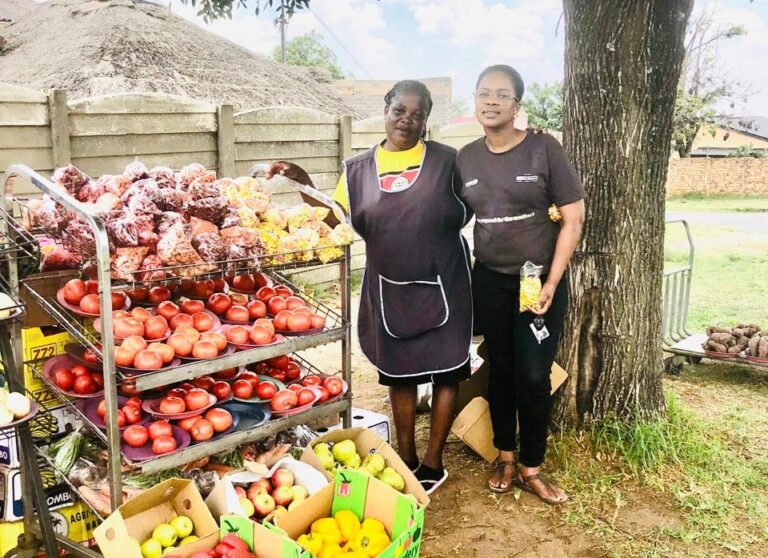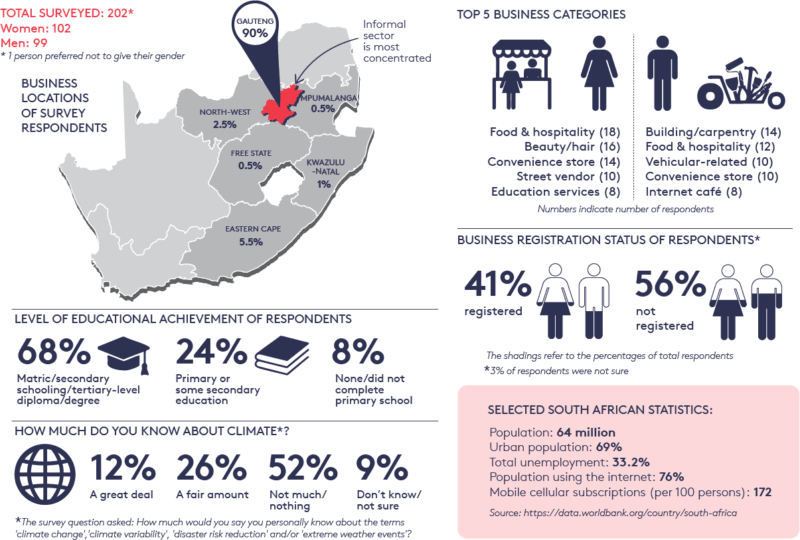Climate risk perception and climate information use: gendered differences among South African entrepreneurs

Download
Authors: Denyse S Dookie, Katharine Vincent, Miriam Murambadoro, Emma Archer, Palesa Base, Songo Benya, Declan Conway, Kate Gannon and Gina Ziervogel
Female entrepreneurs in South Africa face heightened challenges arising from climate change compared with men. Recognising and addressing the gendered dimensions of climate vulnerability, including with regard to the provision of climate information, is essential for ensuring equitable and effective climate adaptation decision-making for entrepreneurs across both the formal and informal sectors.
This brief presents findings from a survey of 202 female and male entrepreneurs in South Africa (see Figure 1) to assess gendered differences in climate information use and provide recommendations for government policymakers.
Summary points
- Entrepreneurs in South Africa are increasingly vulnerable to extreme weather events and there are differences in vulnerability between women and men.
- Women face ‘triple differential vulnerability’ from climate risk, systemic barriers and managing household-level climate impacts.
- In climate risk terms, women are more likely than men to report adverse outcomes from flooding and drought.
- Systemically, women lack awareness of impending extreme weather events and are reliant on family support in the absence of access to finance.
- Use of weather and climate information is widespread, with 75% of entrepreneurs using it for decision-making.
- Women tend to favour short-term tools like daily forecasts, which may limit longer-term decision-making, whereas men use more medium-term information. There are also gendered differences in preferred methods of delivery.
- Of the women who do not use weather and climate information, many cite a lack of awareness and distrust in their reliability.
Recommendations to improve equality of outcomes
- Tailor climate information to gendered job categories: Focus on sector-specific solutions, such as real-time weather alerts for women in informal trade roles and medium-term forecasts for men in building, carpentry and vehicular maintenance.
- Enhance access to actionable climate information: Disseminate this information through a wider range of channels, and ensure that forecasts are relevant and practical and can enable informed decision-making.
- Bridge the gap between awareness and taking action: Provide training on disaster risk reduction and create support systems to empower women in proactive adaptation.
- Start addressing structural gendered inequalities: Increase women’s access to financial resources and develop mentorship programmes to encourage long-term planning.
Figure 1. South African entrepreneurs survey: oveview of respondents


